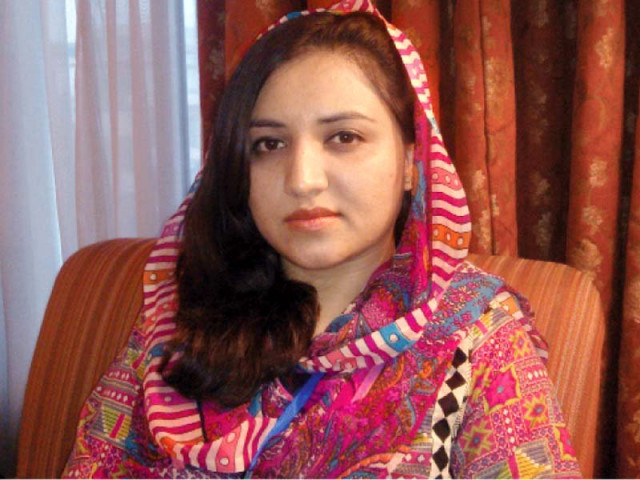Overcoming the odds: Fighting for education
Bibi Halima urges young women to follow their dreams.

Bibi Halima
Bibi Halima, 26, is an icon of women empowerment in her own right. Her recently-published book “Khawabon mein likhi tehreerein” narrates the trials and tribulations of growing up in the remote Hangu District, where girls’ education is often not a priority.
The book is an amalgamation of critical essays, literary reviews and short stories written over a long period of time.
Halima received the Parveen Shakir Award in recognition of her achievements in the academic and literary sphere at the Parveen Shakir Urdu Literature Festival that concluded at a local hotel on Saturday. She also read out a short story that she wrote two days ahead of the festival. Titled “Ghumshuda kaghaz ki kashti,” the story underlines the plight of girls from her native town.
“The story is reflective of how girls are treated in Khyber-Pakhtunkhwa,” said Halima. “It follows a girl who wants to study fine arts but her parents have planned her marriage without her consent. And so, like paper boats, she is destined to lose her own essence.”
Another of her short stories, “Khwaab ki taaber”, is an autobiographical account where the protagonist dreams of becoming a writer in the face of overwhelming odds.
According to Halima, most girls in her area study till middle or high school since there is a general perception that girls don’t need to pursue higher education.
However, there are rare exceptions, and she was one. “As the only daughter of my parents, I was always encouraged to pursue my passion for learning. My parents wanted me to have high aspirations and were very supportive of my lofty ambitions,” said Halima, who bagged first divisions in her matriculation, intermediate and bachelor examinations. While her family stayed back at their native Ibrahim Zai village, she moved into her paternal grandfather’s house to pursue her education in Hangu.
After graduation, she was spending time at home when her parents secretly admitted her to the Peshawar University in the Masters of Urdu Language programme. “It was actually my birthday and the news came as a pleasant surprise,” said Halima, who finished her degree last year. She is the first alumnus of the varsity to compile a book during her student life.
Halima says that her close relatives “openly resisted my parents’ decision to send me off to study in a hostel. It was just unacceptable to them.” But fate had other plans and there was no looking back for Halima. The shift enabled her to hone her creative faculties at the varsity, where she interacted with writers, poets and authors, reviewed books and wrote for literary journals.
“I still remember the first time my report got published in a newspaper. After seeing my name in print, my father had tears of joy in his eyes. That memory has remained with me ever since,” said a smiling Halima.
Halima is quick to mention the writer Mazharul Islam as a source of great literary inspiration for her, and says that she follows her writing religiously. “He is a unique writer who unveils perspectives that are hidden from the common observer,” she added.
Currently based in Peshawar, Halima is looking for a job while she teaches at a private school. Through her writing, she aims to sensitise young girls and their parents on the significance of education as a tool to prosper in society.
To aspiring young writers, her advice is simple: “I want people to express themselves and write their own stories. The pen has enormous power over violence. Once they realise that, they can go a long way in becoming an agent of change.”
Published in The Express Tribune, June 1st, 2014.



















COMMENTS
Comments are moderated and generally will be posted if they are on-topic and not abusive.
For more information, please see our Comments FAQ